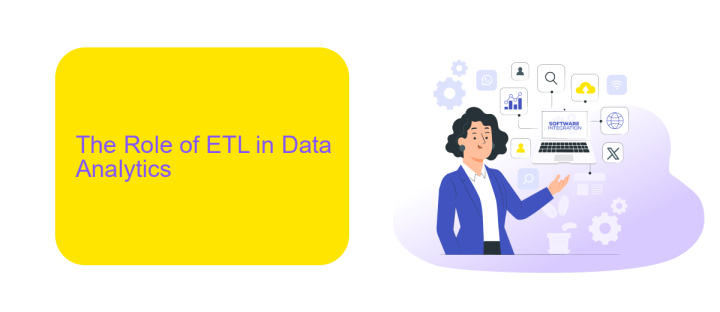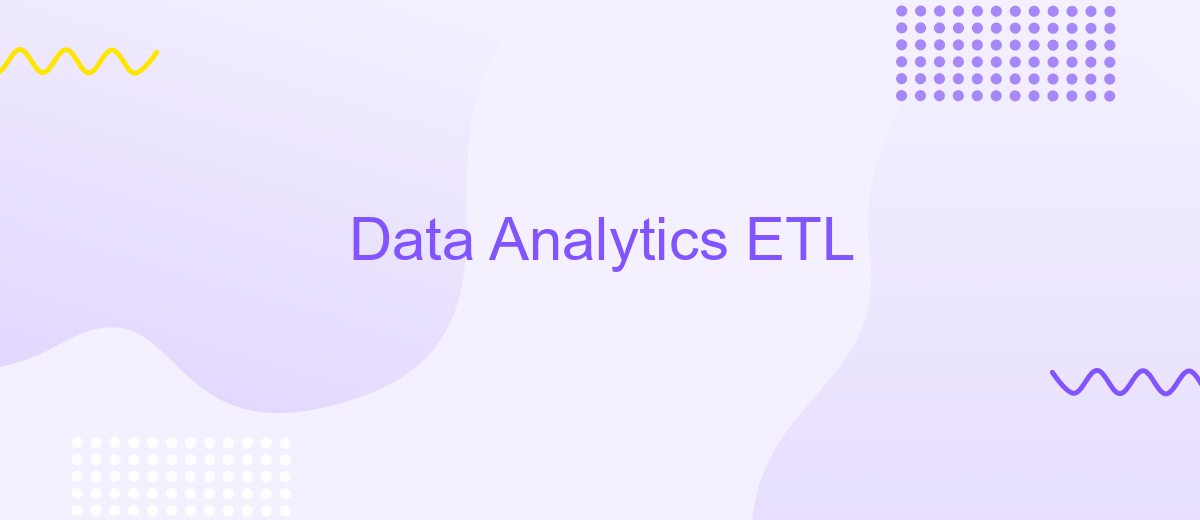Data Analytics ETL
Data analytics has become a cornerstone of modern business intelligence, enabling organizations to make data-driven decisions. The ETL (Extract, Transform, Load) process is crucial in this context, as it ensures that raw data is efficiently converted into actionable insights. This article explores the fundamental aspects of ETL in data analytics, highlighting its importance and offering practical tips for effective implementation.
Introduction to Data Analytics ETL
Data Analytics ETL (Extract, Transform, Load) is a crucial process in the field of data management and analytics. This process involves extracting data from various sources, transforming it into a suitable format, and loading it into a data warehouse or other storage systems for analysis. ETL ensures that data is clean, consistent, and ready for insightful analysis.
- Extract: Gathering data from multiple sources such as databases, APIs, and flat files.
- Transform: Cleaning, filtering, and reformatting the data to meet the requirements of the target system.
- Load: Inserting the transformed data into a data warehouse or other destination systems.
Effective ETL processes are essential for accurate data analysis and decision-making. Tools like ApiX-Drive can automate the integration of various data sources, simplifying the ETL workflow. By leveraging such services, organizations can streamline their data operations, reduce manual errors, and ensure timely data availability for analytics.
The Role of ETL in Data Analytics

ETL (Extract, Transform, Load) is a critical process in data analytics that enables organizations to gather data from various sources, transform it into a suitable format, and load it into a data warehouse or other storage systems. This process is essential for ensuring data consistency, quality, and accessibility, which are fundamental for effective data analysis. By automating the ETL process, businesses can save time and resources, allowing data analysts to focus on extracting valuable insights rather than managing data pipelines.
Integration services like ApiX-Drive can significantly enhance the ETL process by providing seamless connections between different data sources and destinations. ApiX-Drive offers a user-friendly interface and powerful automation tools that simplify the configuration of data integrations, making it easier to extract, transform, and load data without extensive coding knowledge. This not only improves the efficiency of the ETL process but also ensures that data is always up-to-date and ready for analysis, ultimately driving better decision-making and business outcomes.
ETL Process Overview

The ETL (Extract, Transform, Load) process is a critical component in data analytics, enabling the seamless integration and transformation of data from various sources into a centralized data warehouse. This process ensures that data is clean, consistent, and ready for analysis, providing valuable insights for decision-making.
- Extract: This initial phase involves retrieving data from multiple sources, such as databases, APIs, and flat files. Tools like ApiX-Drive can simplify this step by automating data extraction from various platforms.
- Transform: In this phase, the extracted data is cleaned and transformed to fit the desired format. This may include filtering, aggregating, and enriching the data to ensure it meets the analytical requirements.
- Load: The final phase involves loading the transformed data into a target data warehouse or database. This ensures that the data is accessible for querying and analysis by business intelligence tools.
By utilizing a robust ETL process, organizations can efficiently manage and analyze their data, leading to more informed business decisions. Services like ApiX-Drive offer powerful automation and integration capabilities, streamlining the ETL process and enhancing overall data quality.
Key Considerations for ETL Implementation

When implementing an ETL (Extract, Transform, Load) process, it is crucial to consider several key factors to ensure its success. The ETL process is fundamental in data analytics, as it enables the seamless integration and transformation of data from various sources into a unified format for analysis.
First, data quality and consistency must be prioritized. Ensuring that the data extracted is accurate and clean will prevent errors during the transformation and loading stages. Additionally, the ETL system should be scalable to handle increasing volumes of data as the organization grows.
- Data Quality and Consistency
- Scalability
- Performance Optimization
- Security and Compliance
- Integration Capabilities
Integration capabilities are particularly important, and tools like ApiX-Drive can simplify the process of connecting different data sources. By automating data transfers and transformations, ApiX-Drive helps streamline the ETL process, reducing manual effort and minimizing the risk of errors. Ultimately, considering these factors will lead to a more efficient and reliable ETL implementation.
- Automate the work of an online store or landing
- Empower through integration
- Don't spend money on programmers and integrators
- Save time by automating routine tasks
Best Practices for ETL Development
To ensure efficient ETL development, it's crucial to maintain clear documentation and version control. Thoroughly document each step of the ETL process, including data sources, transformations, and loading procedures. Use version control systems like Git to track changes and collaborate effectively with your team. This approach not only helps in maintaining data integrity but also simplifies troubleshooting and updates.
Another best practice is to implement robust error handling and monitoring mechanisms. Set up automated alerts to notify your team of any issues during the ETL process. Utilize services like ApiX-Drive to streamline integrations and automate data workflows, ensuring seamless data transfers between systems. Regularly review and optimize your ETL processes to improve performance and scalability, keeping in mind the evolving data landscape and business requirements.
FAQ
What is ETL in Data Analytics?
Why is ETL important in Data Analytics?
What are some common challenges in the ETL process?
How can ETL processes be automated?
What are the benefits of automating ETL processes?
Apix-Drive will help optimize business processes, save you from a lot of routine tasks and unnecessary costs for automation, attracting additional specialists. Try setting up a free test connection with ApiX-Drive and see for yourself. Now you have to think about where to invest the freed time and money!


